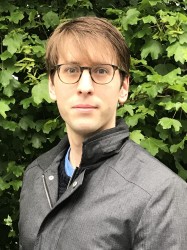Overview
Group Webpage: crimmingroup
Fluorine
Fluorocarbons, while contributing to improving our quality of life, are environmentally persistent and damaging. For example, CFCs contributed to a hole in the ozone layer, while HFCs are potent contributors to global warming. HFOs have been billed as next generation refrigerants, but their long term impact on the environment is not yet clear. We are studying catalysts and reagents that transform fluorocarbons into reactive molecules containing carbon-element bonds (element = B, Si, Al, Zn, Mg, Fe). We hope the approach will allow the synthetic diversification and recycling of waste fluorocarbons such as HFOs and HFCs.
Catalysis
There is a growing demand to make molecules from sustainable sources. Biomass has been identified as one such source. Biomass comprises of cellulose, hemicellulose and lignin. Using small molecules from renewable sources as an entry point to synthesis creates new challenges on how we selectively break and create bonds in molecules rich in elemental oxygen. We are studying catalysts for the selective upgrading of C–O bonds and C–H bonds of molecules derived from sugars and lignin. Alongside these studies we are developing new approaches to make small carbon chains from CO and CO2. These methods currently rely on the stoichiometric use of aluminium - the most abundant metal in the earth's crust.
Organometallics
Element scarcity is a problem that is likely to continue to provide challenges as our energy and materials demands increase. A number of transition metal elements, vital for our chemical manufacturing industry, are now classified as high risk due to limited supply. We are studying new fundamental reactivity of molecules based on some of the most abundant, available and inexpensive elements. This includes understanding new reversible and redox reactivity of aluminium compounds and investigating new types of metal---metal interactions between transition metals and main group metals (Al, Zn, Mg).
Research Student Supervision
Butler,M, Organometallic Reagents for C–O Bond Activation
Nako,AE

